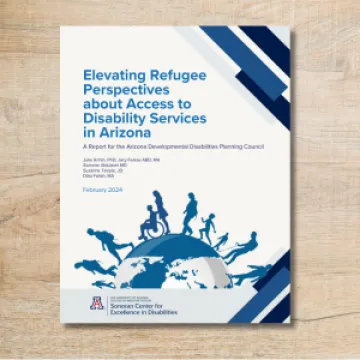
Elevating Refugee Perspectives about Access to Disability Services in Arizona
About
In Arizona, the Developmental Disabilities Planning Council’s 2018 report on Refugees with Disabilities found a lack of collaboration between Refugee Resettlement Agencies and disability services/agencies. Further, the report noted lack of language interpretation, differing understandings of disability, and highlighted the intersectoral barriers that result in fragmented systems which are difficult to navigate. The current project, Elevating Refugee Perspectives about Access to Disability Services in Arizona, highlights areas where and how Arizona may improve access to disability services for the diverse populations of refugees in the state.
Project activities were designed to build relationships with community partners and conduct outreach, collect data about gaps and needs in the service system, understand the lived experience of refugees with disabilities, and describe agency and legislative policies and practices that influence the experiences of refugees with disabilities.

DOWNLOAD FINAL 2024 REPORT
REPORT APPENDICES
PLAIN LANGUAGE SUMMARY
Contact
To learn more, contact project principal investigators:
- Julie Armin, PhD – lead Co-PI at jarmin@arizona.edu
- Jacy Farkas, MA, ABD – Co-PI at jkbell@arizona.edu
